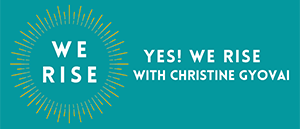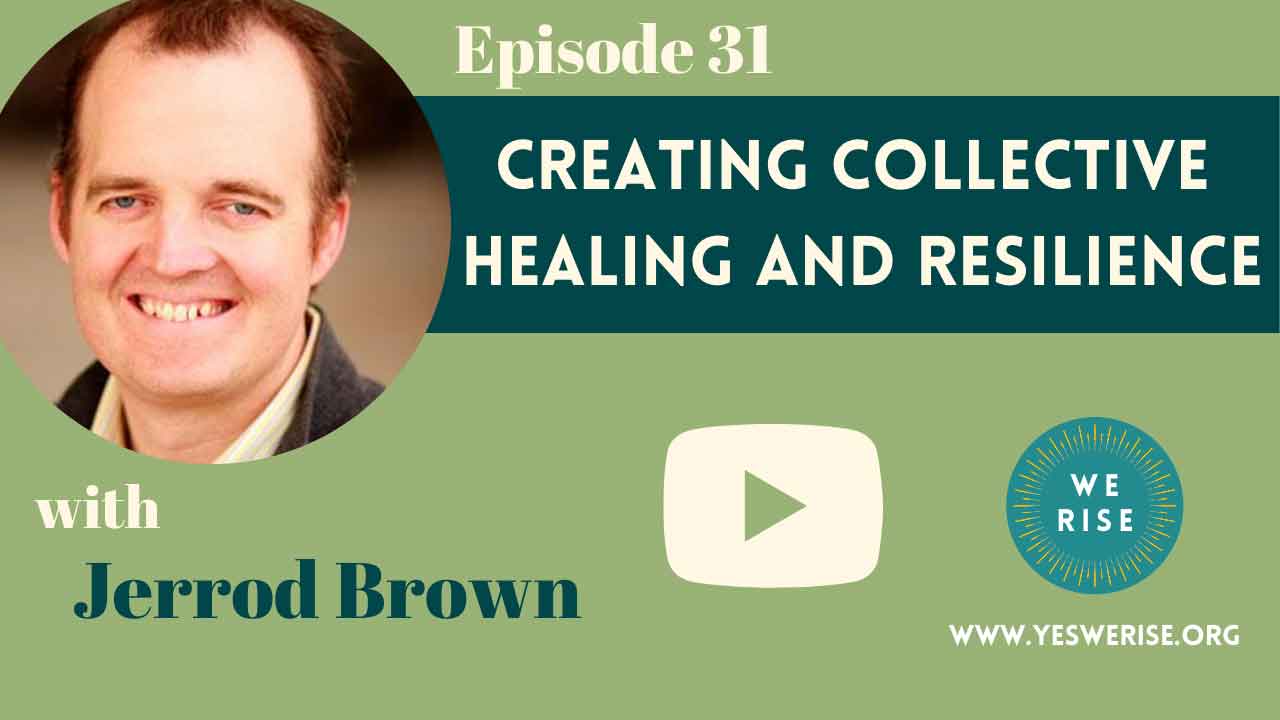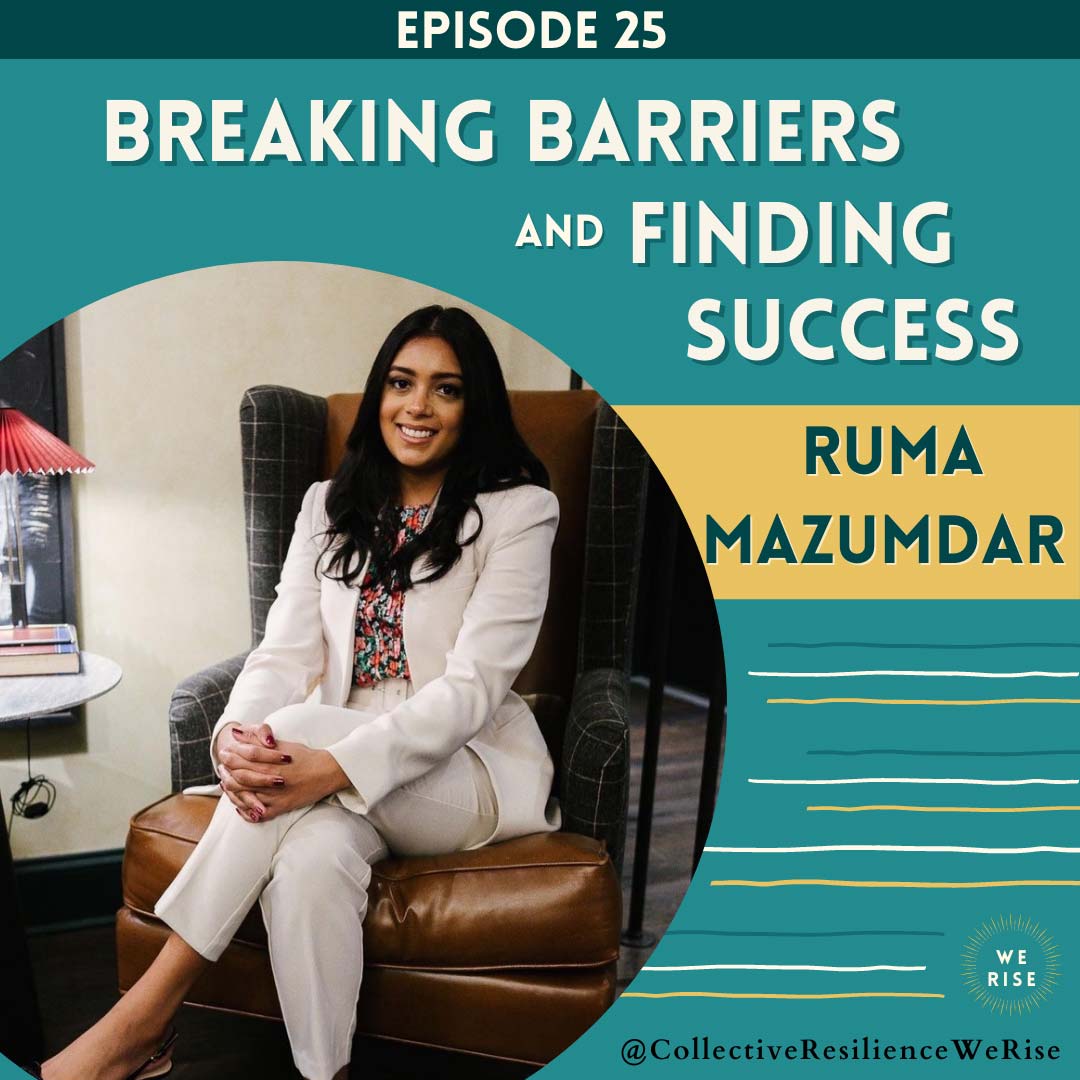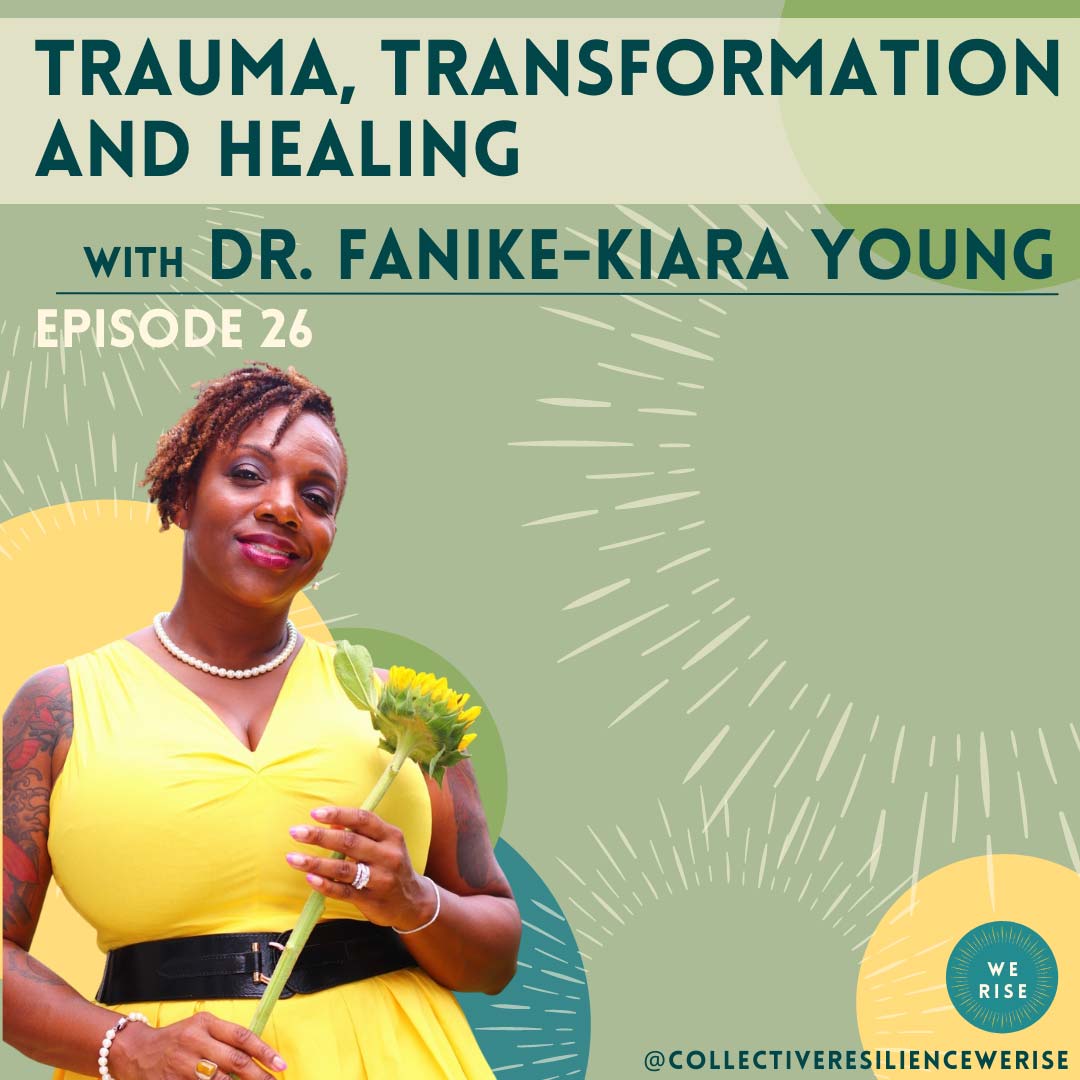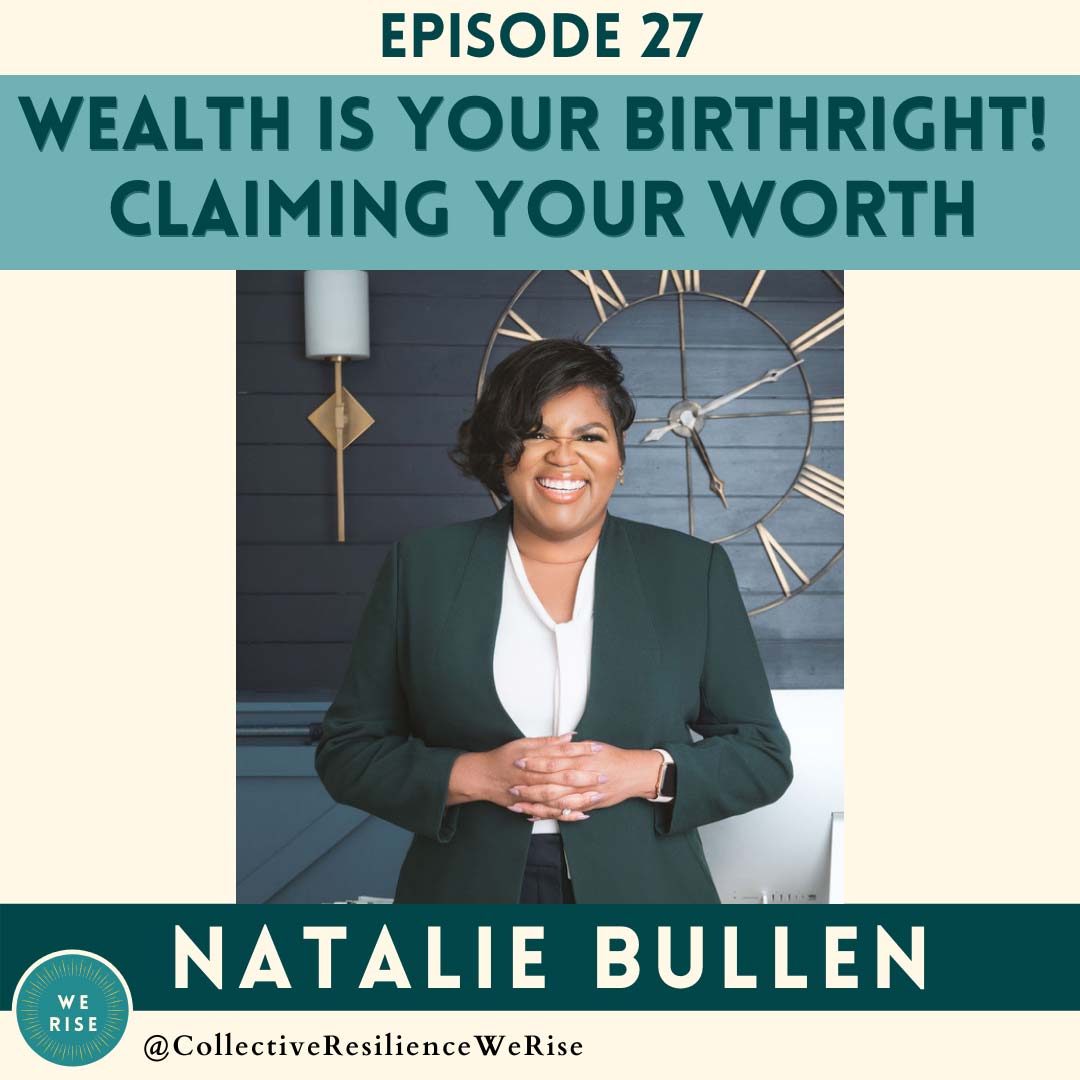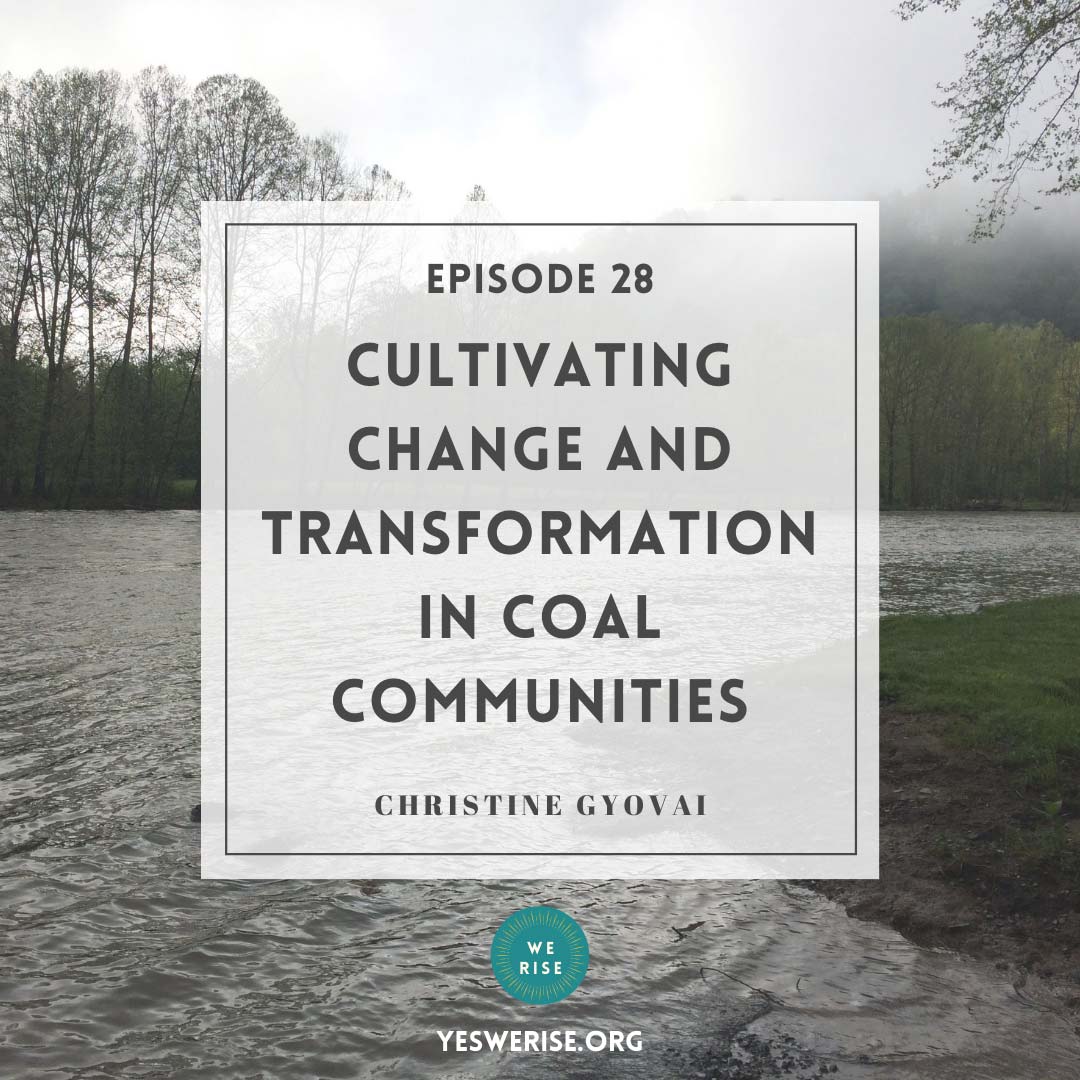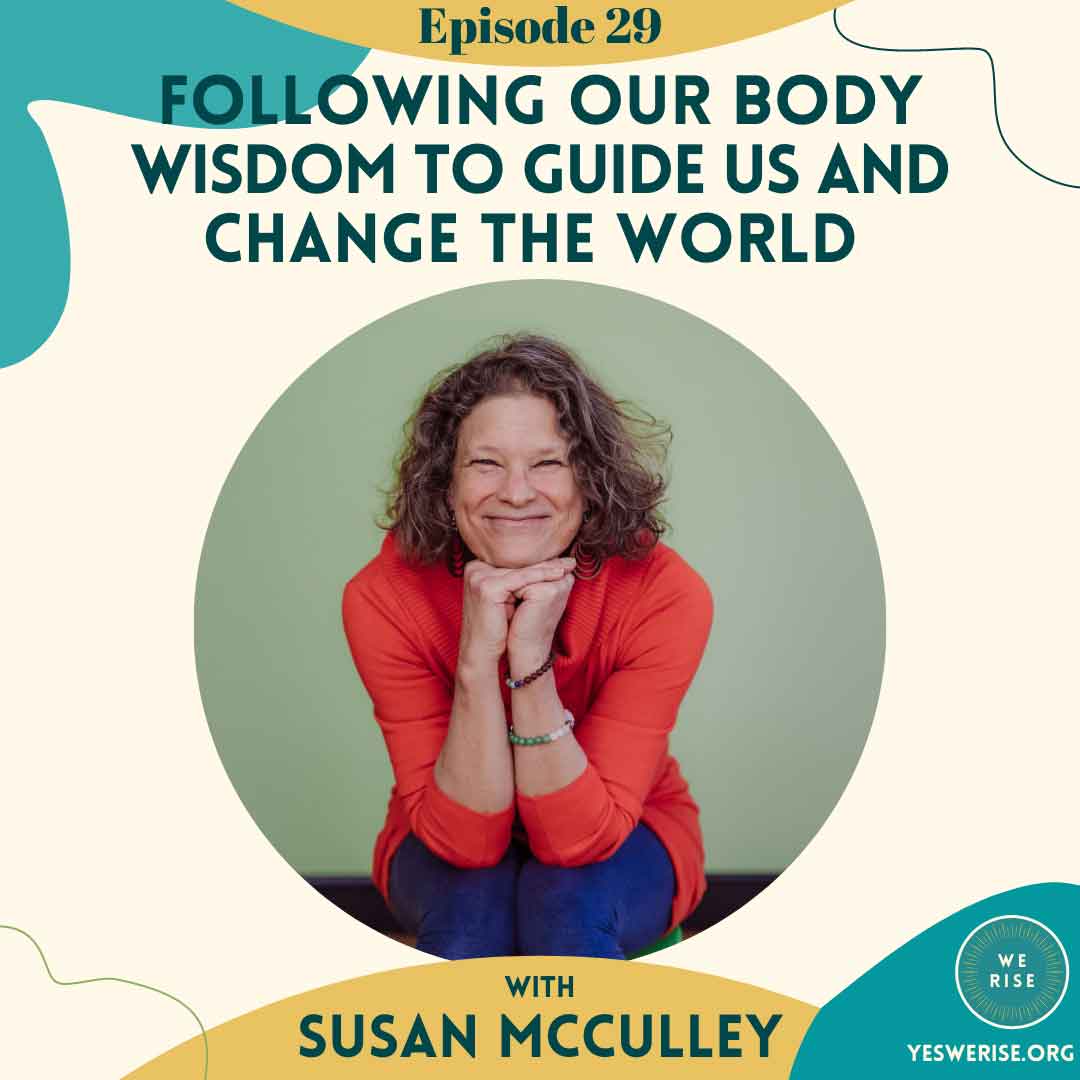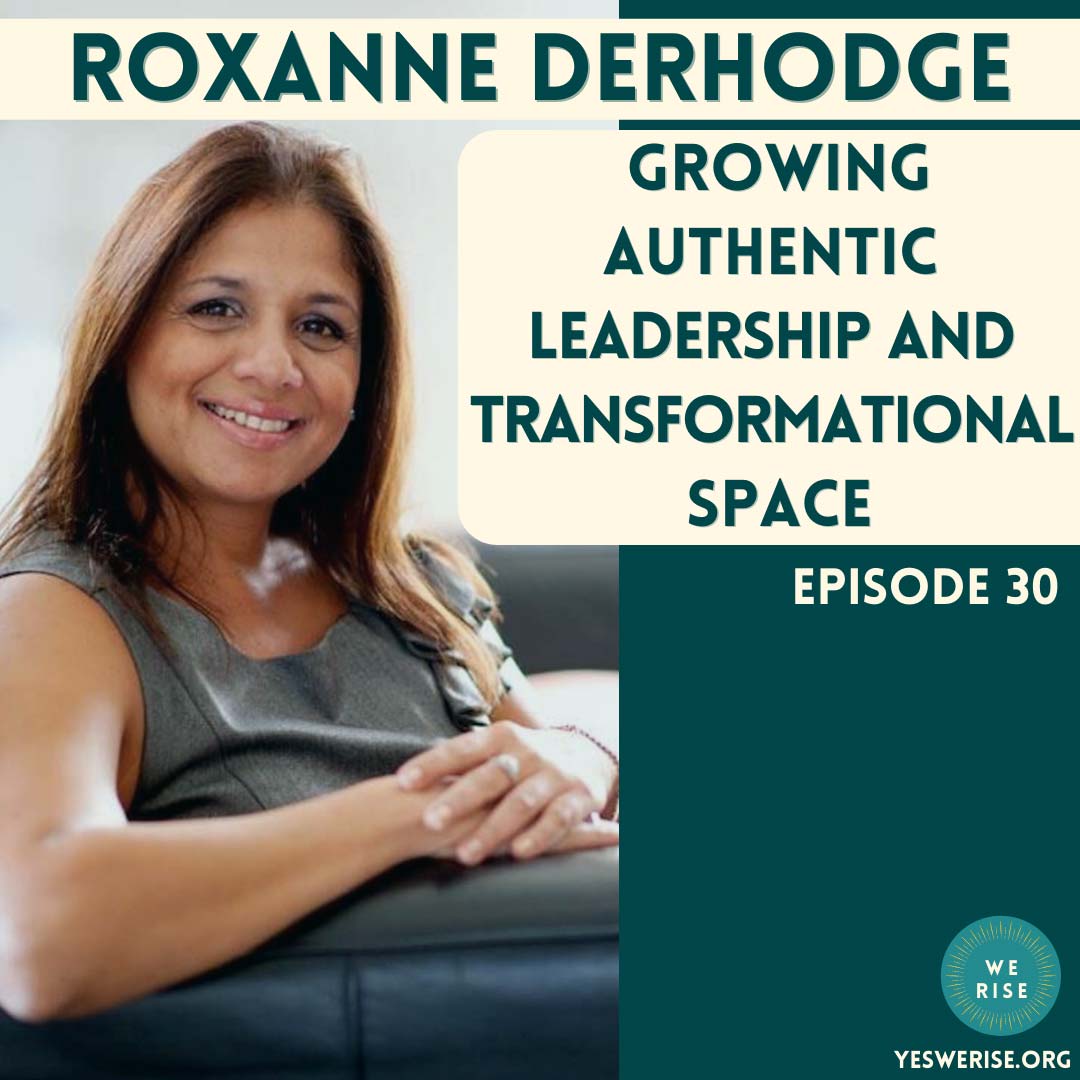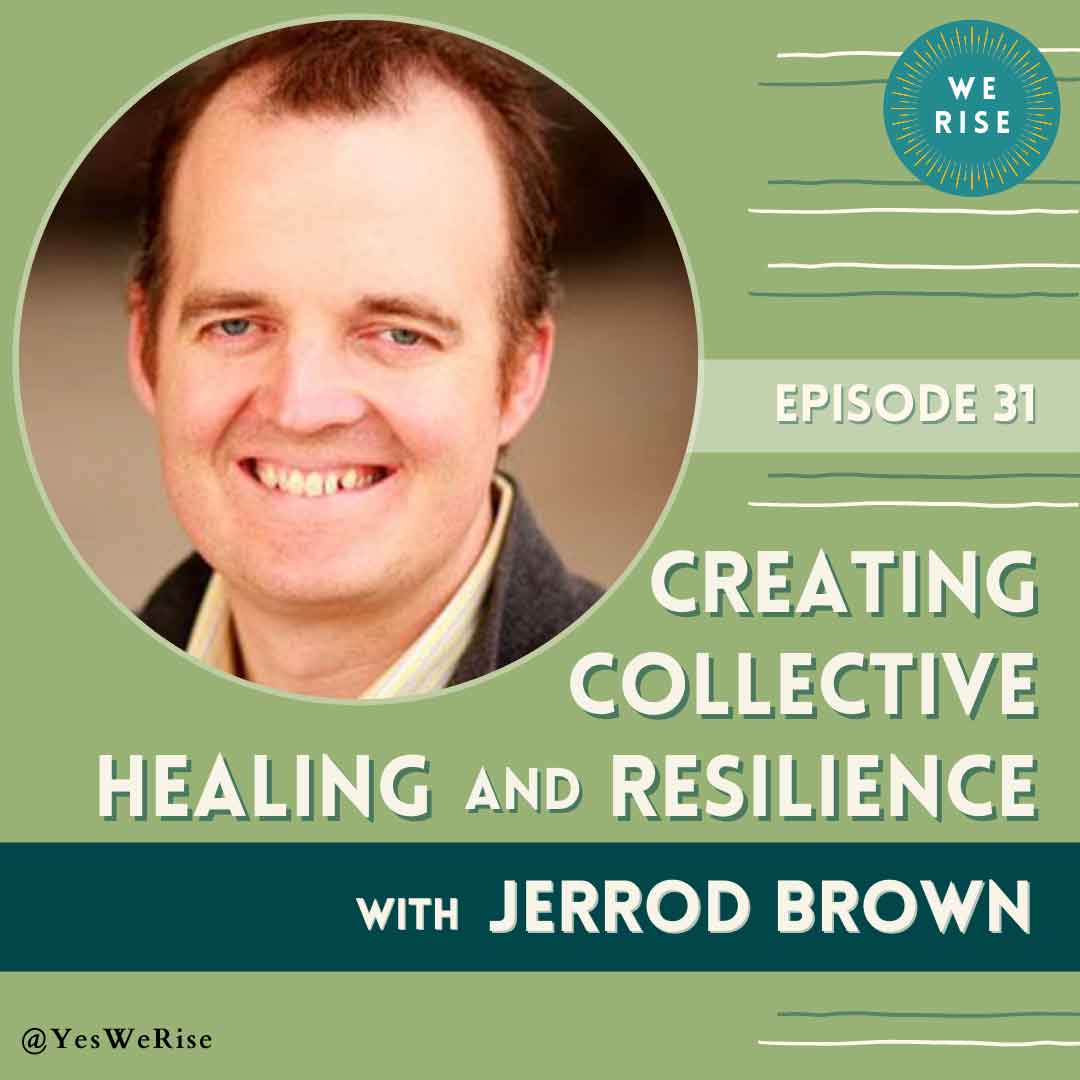
Episode 31:
Creating Collective Healing and Resilience with Jerrod Brown
Listen to the podcast on your favorite platform:
Apple Google Play Stitcher Spotify Amazon Music
Episode 31 Description
What does it take to overcome and heal through trauma?
In today’s episode of Yes! We Rise, Christine is joined by professor Jerrod Brown. Jerrod offers his wisdom and expertise on trauma and cultivating resilience and healing. He explains the importance of leaning into emotions, self-care, and gratitude. Learn about trauma at the individual level and as a community, and discover simple, yet powerful ways to support yourself and your family in building resilience and a strong, stable foundation!
There are endless nuggets of gold in this episode you don’t want to miss out on. Enjoy!
Jerrod Brown is a professor, trainer, consultant and researcher who works in the area of resilience and trauma informed care. His main areas of expertise are in fetal alcohol spectrum disorder, autism, and traumatic brain injuries confabulation. Over the past few years, Jerrod has been digging into trauma, resilience, and trauma-informed care, and shares much of what he’s learned in this episode.
Download the show Notes
find this episode on youtube
Key takeaways
Trauma, resilience, and leaning into emotions
Trauma is universal. By being alive, it is likely you’ve experienced some form of it. There are numerous forms of trauma including single incident, betrayal trauma, historical trauma, and Post Traumatic Stress Disorder (PTSD). Jerrod’s work is primarily centered around complex and developmental trauma.
So why is it that each person responds to trauma so differently?
Jerrod attributes this to resilience. A person’s response and resilience to trauma is often informed by variables like their own resources, support systems, level of self-esteem, and environment.
Throughout Jerrod’s work, he has seen over and over the ability of trauma to rob people of their joy. So if resilience is key to a person’s ability to cope with trauma, how does a person foster their resilience?
There are maladaptive coping strategies and adaptive coping strategies. The former can present through abuse of vices like alcohol, drugs and food. Adaptive strategies include sleep hygiene, physical movement, nourishment, humor, and learning to feel emotions.
Leaning into emotions can be scary for many folks, so it can be helpful to surround yourself with supportive people. Jerrod firmly believes that asking for help is a sign of strength.
He shares that, “learning how to regulate your body can regulate your mind. Getting good sleep, eating healthy, all of those things can help process emotions and not make them scary and build your resilience.”
Collective trauma and collective healing
On a broader scale we have gone through communal trauma over the past few years. Navigating through a pandemic, global unrest, and a reckoning with racism, where there is breakdown, we often experience a breakthrough.
Through the era of COVID, Jerrod has observed at a societal level an increase in sleep problems, sugar addiction, chronic low grade inflammation, anxiety, depression, worry, and fear. As we move through these experiences, he has also noticed people making better choices, too.
From living a more balanced life, to turning off technology, to connecting more with community, folks have become aware of the things that were not working for them any longer and are beginning to choose differently.
If you’re hoping to bring more space and stillness into your life to have a better balance, Jerrod offers some options including yoga, dancing and being silly, coloring books, gratitude journals, mindful nourishment, setting boundaries, and being surrounded by a good community.
Jerrod himself has implemented several of these self-care practices into his life. He is currently doing a technology detox at night, has incorporated daily movement of different kinds into his daily routine, and has a sleep routine. From an emotional perspective, he focuses on self compassion and kindness.
Promoting family resilience
Resilience can also occur within the family unit. Building up resiliency within a family can look like promoting positive communication, proactively dealing with problems, disconnecting from technology and having dinner together.
There are also what Jerrod calls “attachment approaches.” Families can develop an environment that fosters kindness, hopefulness, validation, flexibility, adaptability, and empathy. It can be so helpful for someone to know there’s no shame or humiliation for making a mistake. For parents, it is important to know the difference between positive parenting practices versus harsh parenting.
Parents should also know that when a mistake is made on their part, it’s encouraged to acknowledge it to the child and ask for forgiveness. Modeling self-awareness and self-regulation helps kids develop these skills in their own life.
To model self-awareness, self-regulation, and self-care requires practicing it. From journaling, to sleep hygiene, proper nourishment to being curious about your emotions, what are some ways that you can build your resilience?
notable quotes from Jerrod
“There’s so many people right now in this era of COVID-19 that are really dealing with some level of trauma, worry, hardship, uncertainty, so providing people with the necessary kind of education, tools, resources, through a gratitude and resilience lens, I think can lead to some really positive outcomes.”
“My knowledge of trauma and resilience has helped me better understand human behavior and why people may have reactions that they do, and really working at it through kind of a trauma-informed, resilience based mindset has been really life changing for me professionally.”
“One of the best things you can do, I think, to build resilience, is to learn about emotions. Be curious. Why are you feeling angry right now? Why am I irritable? Learn to lean into that emotion.”
“Be okay with things not being okay.”
“Asking for help is not a sign of weakness. I think that’s a sign of strength.”
“Learning how to regulate your body can regulate your mind, getting good sleep, eating healthy, all of those things can help process emotions and not make them scary and build your resilience.”
“A lot of people struggle with stillness and boredom. Let boredom be your friend. Because I think boredom is a gateway into creativity, and creativity can do a lot of wonderful things.”
“Kids, no matter the age, they’re always going to pick up on things, even teenagers who probably act like they want nothing to do with their parents, they’re still watching. You may not be able to tell- Stay regulated, model healthy living behaviors, model prosocial behaviors.”
“Immediate gratification may not be the way to go. Maybe you have a goal. You might not see immediate results. It could be weeks, months or years.”
LINKS/RESOURCES MENTIONED
If you have questions or would like to know more, feel free to reach out to Jerrod at: Jerrod01234Brown@live.com.
Discover more about self-compassion from Kristen Neff’s work and vulnerability through Brené Brown.Learn more about delayed gratification through the Marshmallow Test.
The Yes! We Rise podcast features solutions-seekers, change-makers, and those creating a resilient future. We share stories and strategies to inspire action to build resilience and community transformation. To create change, people need to feel like they belong and that they are part of a growing movement. They need to know their voice matters and that they have the inspiration, agency and ability to transform their lives and their communities. They are the key to a resilient future.
From the Navajo Nation to the mountains of Appalachia, incredible work is being done by community members and leaders. Change is often sparked by inspiration: seeing what others have done, especially in similar situations and places. People see that when someone looks like them or lives in a place like theirs, and has created real, true and lasting change, change that will allow their granddaughters and grandsons to thrive — they begin to imagine what might be possible for them. No longer waiting for someone else to come and save them, they realize they are the ones they have been waiting for. But what creates that spark? What creates that inspiration? Learning through stories and examples, feeling a sense of agency and belonging, and getting fired up to kick ass creates that spark.
We Rise helps community leaders and members learn to forge a new path toward creating resilience and true transformation. One person at a time, one community at a time, one region at a time, the quilt of transformation can grow piece by piece until resilience becomes the norm instead of the exception. Together, we rise.
Links/resources mentioned
If you have questions or would like to know more, feel free to reach out to Jerrod at: Jerrod01234Brown@live.com.
Discover more about self-compassion from Kristen Neff’s work and vulnerability through Brené Brown.
Learn more about delayed gratification through the Marshmallow Test.
The Yes! We Rise is produced by Dialogue + Design Associates, Podcasting For Creatives, with music by Drishti Beats.
Follow Yes! We Rise on Facebook and Instagram.
Please rate, review, and subscribe to the podcast so we can continue spreading our message far and wide. Find our email list at the website: www.yeswerise.org. Thanks for listening.
The Yes! We Rise podcast features solutions-seekers, change-makers, and those creating a resilient future. We share stories and strategies to inspire action to build resilience and community transformation. To create change, people need to feel like they belong and that they are part of a growing movement. They need to know their voice matters and that they have the inspiration, agency and ability to transform their lives and their communities. They are the key to a resilient future.
From the Navajo Nation to the mountains of Appalachia, incredible work is being done by community members and leaders. Change is often sparked by inspiration: seeing what others have done, especially in similar situations and places. People see that when someone looks like them or lives in a place like theirs, and has created real, true and lasting change, change that will allow their granddaughters and grandsons to thrive — they begin to imagine what might be possible for them. No longer waiting for someone else to come and save them, they realize they are the ones they have been waiting for. But what creates that spark? What creates that inspiration? Learning through stories and examples, feeling a sense of agency and belonging, and getting fired up to kick ass creates that spark.
We Rise helps community leaders and members learn to forge a new path toward creating resilience and true transformation. One person at a time, one community at a time, one region at a time, the quilt of transformation can grow piece by piece until resilience becomes the norm instead of the exception. Together, we rise.
